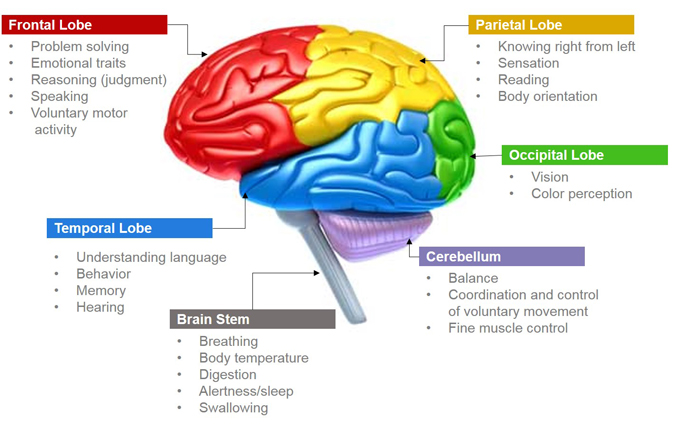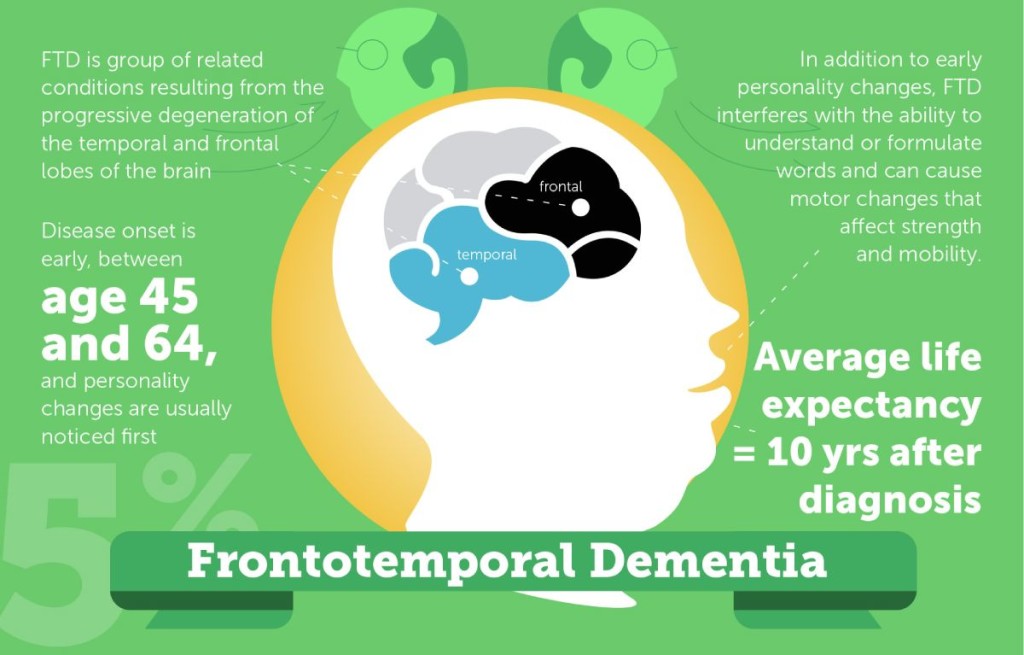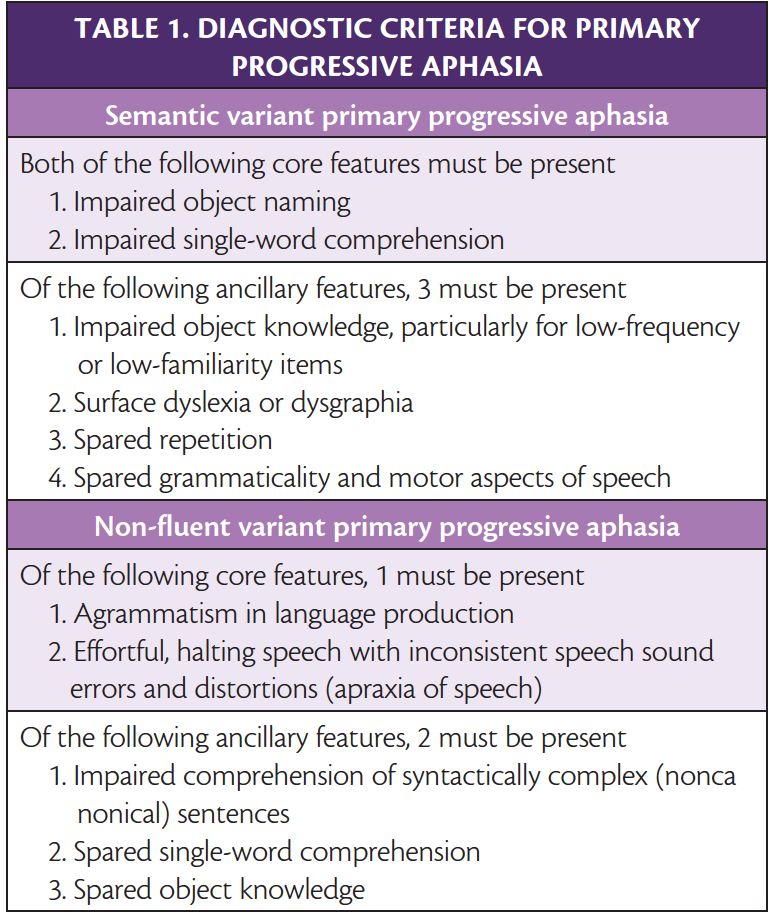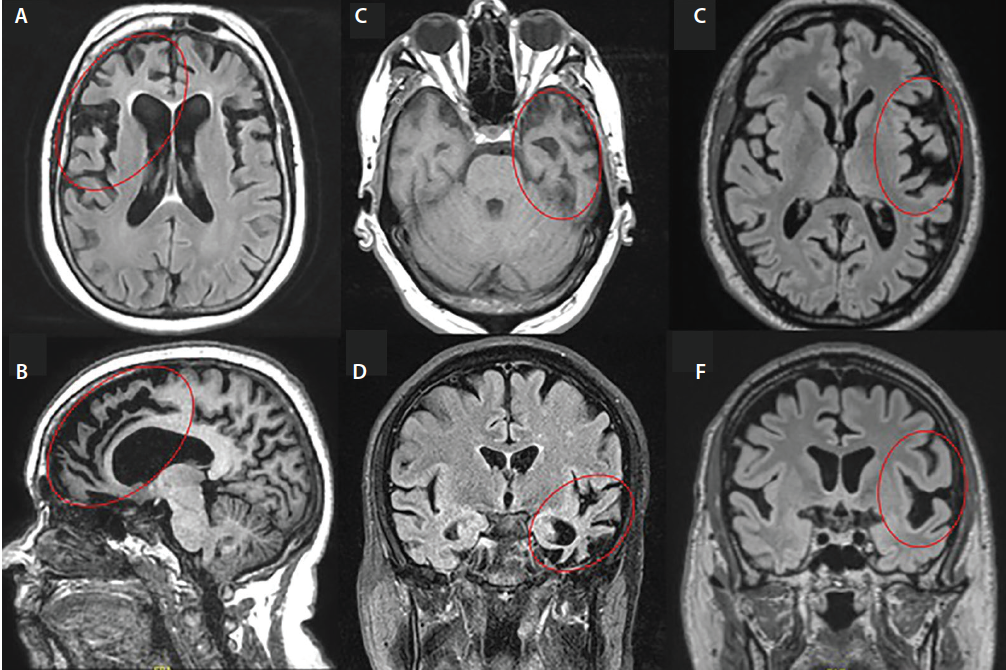Frontal Lobe Dementia Disease Progression

Dementia is the name for problems with mental abilities caused by gradual changes and damage in the brain.
Frontal lobe dementia disease progression. FTD often begins during years when adults expect to be healthy and productive. Symptoms typically first occur between the ages of 40 and 65 and can include changes in personality and behavior progressive loss of speech and language skills and sometimes physical symptoms such as tremors or spasms. Stage 1 of dementia can also be classified as the normal functioning stage.
Older adults can start to see symptoms all the way into their 80s. FTD tends to progress over time. Dementia mostly affects people over 65 but frontotemporal dementia tends to start at a younger age.
As neurons die in the frontal and temporal regions these lobes atrophy or shrink. In most people this is accompanied by a buildup of one or the other of two proteins tau or TDP-43. Frontotemporal lobar degeneration progresses more rapidly than Alzheimer disease and the fastest-progressing cases are those with the frontotemporal dementia clinical subtype coexisting motor neuron disease or tau-negative neuropathology.
Damage to the brains frontal and temporal lobes causes forms of dementia called frontotemporal disorders. At this stage of dementia development a patient generally does not exhibit any significant problems with memory or any cognitive impairment. Frontotemporal dementia age of onset can be as early as the age of 40 with 54 being the average age of onset and is often misdiagnosed in younger adults as a psychiatric issue and in older adults as Alzheimers.
FTD also known as Picks Disease is a term used to describe a form of dementia that causes neuronal death and progressive damage to the frontal and temporal lobes of the brain. These are behavioural variant frontotemporal dementia semantic dementia and progressive nonfluent aphasia. The cause of FTD is unknown.
Signs and symptoms are classified into three groups based on the affected functions of the frontal and temporal lobes. Frontotemporal degeneration is caused by progressive damage and loss of nerve cells in the frontal and temporal lobes of the brain. In many cases people living the behavioral variant of frontotemporal dementia will also develop symptoms of the language variants in this stage or vise-versa.

When you and your family are dealing with Frontotemporal Dementia FTD you should understand that the length of the disease and the pace of symptom appearance vary from one person to the next.
Frontal lobe dementia disease progression. At this stage of dementia development a patient generally does not exhibit any significant problems with memory or any cognitive impairment. Dementia mostly affects people over 65 but frontotemporal dementia tends to start at a younger age. Frontotemporal dementia age of onset can be as early as the age of 40 with 54 being the average age of onset and is often misdiagnosed in younger adults as a psychiatric issue and in older adults as Alzheimers.
FTD also known as Picks Disease is a term used to describe a form of dementia that causes neuronal death and progressive damage to the frontal and temporal lobes of the brain. The symptoms initially seen in the milder initial stage will become more disabling and pronounced over the course of eight to ten years as the disease. These are behavioural variant frontotemporal dementia semantic dementia and progressive nonfluent aphasia.
FTD often begins during years when adults expect to be healthy and productive. Each type of FTD typically follows a pattern. The most common are the behavioral variant of frontotemporal dementia bvFTD and the.
Frontotemporal lobar degeneration progresses more rapidly than Alzheimer disease and the fastest-progressing cases are those with the frontotemporal dementia clinical subtype coexisting motor neuron disease or tau-negative neuropathology. As neurons die in the frontal and temporal regions these lobes atrophy or shrink. Frontotemporal degeneration is caused by progressive damage and loss of nerve cells in the frontal and temporal lobes of the brain.
In most people this is accompanied by a buildup of one or the other of two proteins tau or TDP-43. An overlap between symptoms can occur as the disease progresses and spreads through the brain regions. Disruption of the frontal lobes and its associated networks are a common consequence of neurodegenerative disorders.
In many cases people living the behavioral variant of frontotemporal dementia will also develop symptoms of the language variants in this stage or vise-versa. Signs and symptoms are classified into three groups based on the affected functions of the frontal and temporal lobes. Older adults can start to see symptoms all the way into their 80s.

The symptoms initially seen in the milder initial stage will become more disabling and pronounced over the course of eight to ten years as the disease.
Frontal lobe dementia disease progression. In most people this is accompanied by a buildup of one or the other of two proteins tau or TDP-43. Disruption of the frontal lobes and its associated networks are a common consequence of neurodegenerative disorders. These are behavioural variant frontotemporal dementia semantic dementia and progressive nonfluent aphasia.
FTD tends to progress over time. Understanding the Progression of Frontotemporal Dementia. FTD also known as Picks Disease is a term used to describe a form of dementia that causes neuronal death and progressive damage to the frontal and temporal lobes of the brain.
An overlap between symptoms can occur as the disease progresses and spreads through the brain regions. Stage 1 of dementia can also be classified as the normal functioning stage. Signs and symptoms are classified into three groups based on the affected functions of the frontal and temporal lobes.
As neurons die in the frontal and temporal regions these lobes atrophy or shrink. Older adults can start to see symptoms all the way into their 80s. The cause of FTD is unknown.
Frontotemporal disorders are the result of damage to neurons nerve cells in parts of the brain called the frontal and temporal lobes. Each type of FTD typically follows a pattern. Dementia mostly affects people over 65 but frontotemporal dementia tends to start at a younger age.
Symptoms typically first occur between the ages of 40 and 65 and can include changes in personality and behavior progressive loss of speech and language skills and sometimes physical symptoms such as tremors or spasms. In many cases people living the behavioral variant of frontotemporal dementia will also develop symptoms of the language variants in this stage or vise-versa. The most common are the behavioral variant of frontotemporal dementia bvFTD and the.









